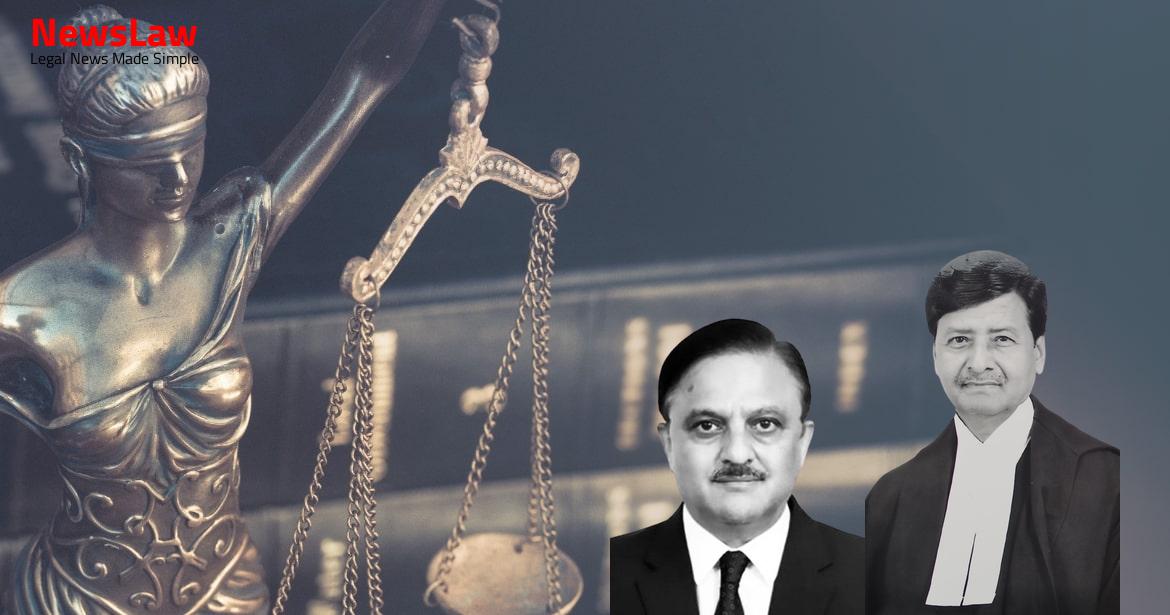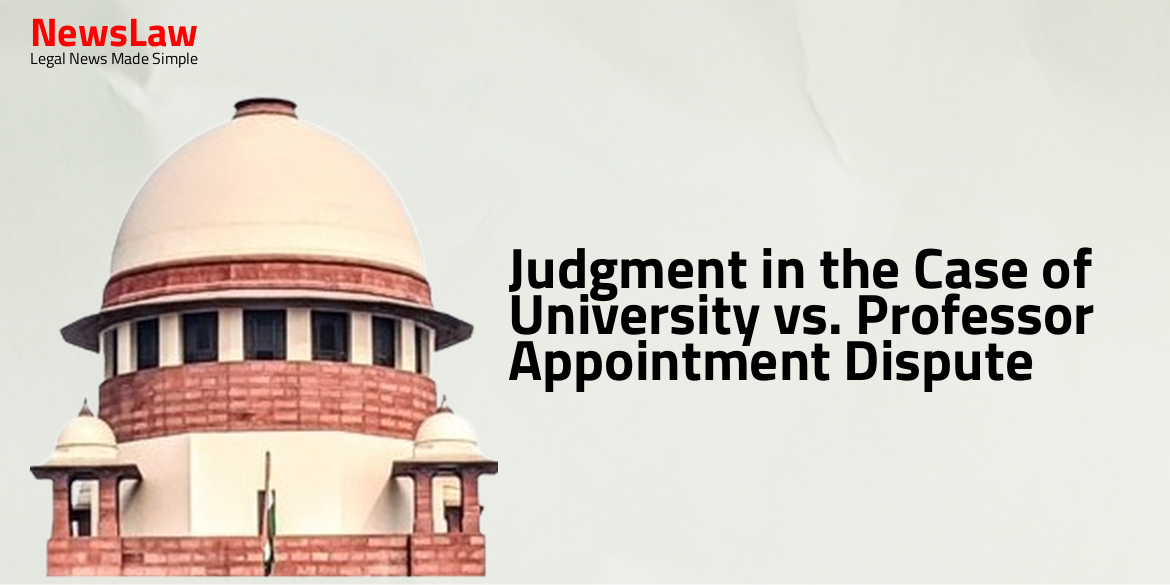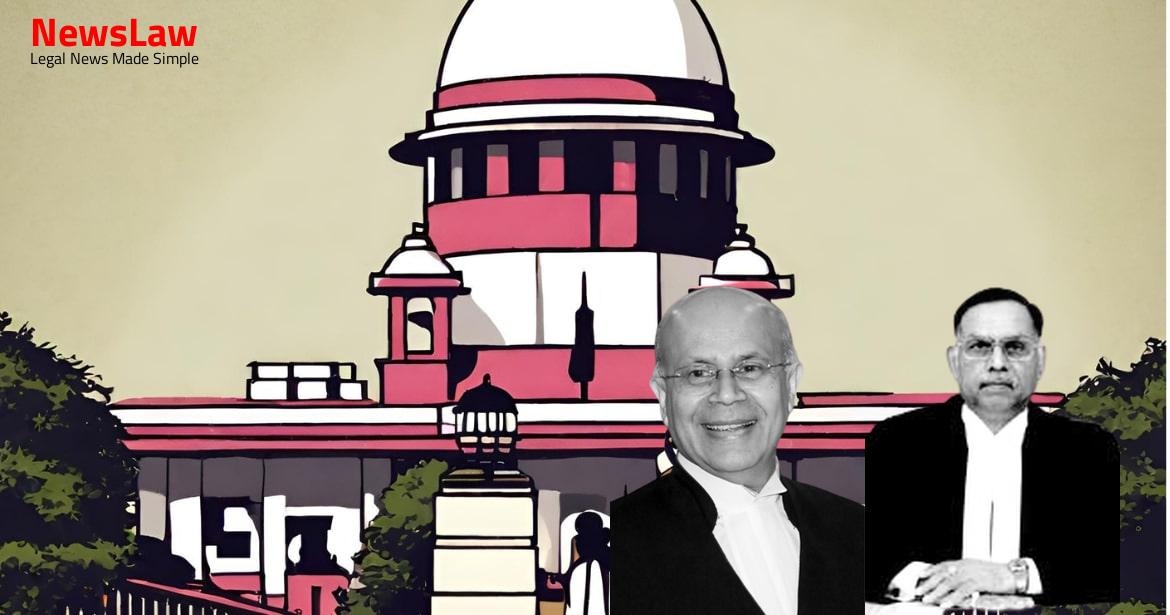Explore a detailed legal analysis of a recent case highlighting the protection of vested rights in the context of pension scheme amendments. The court’s thorough examination emphasized the need to uphold constitutional rights, especially regarding retrospective changes that may impact existing benefits. Stay tuned to understand the nuances of the court’s decision and its implications on employee rights and financial stability.
Facts
- The amendment in the Rules, 1978 introduced Rule 15(ii) authorizing the Board of Directors to formulate a pension scheme with the approval of the Registrar Cooperative Societies, Punjab.
- The principal object of the Bank is to provide long term loans to the farming community and protect them from money lenders.
- The appellant Bank found the pension scheme unviable due to financial constraints and decided not to apply it to employees hired after 1.1.2004, with restrictions on benefits like commutation of pension, medical reimbursement, and LTC for pensioners.
- The Registrar, Cooperative Societies, Punjab directed the appellant Bank to review its proposal regarding the pension scheme.
- Various resolutions and amendments were made regarding the pension scheme and contributions to the pension fund.
- The bank introduced a proposal for a one-time settlement for pension claims, subject to legal rights of employees.
- The employees approached the High Court under Article 226 regarding their pension benefits, and interim orders were passed.
- The pension scheme introduced in 1989 was discontinued by the Bank in 2012, reverting to the Contributory Provident Fund.
- Recommendations by the Department of Finance, Government of Punjab led to the introduction of the pension scheme in the Bank.
- Resolution No.24 in 1989 formalized the introduction of the pension scheme for employees in the Bank’s common cadre.
- Employees who opted for the pension scheme continued to receive pension benefits until 2010.
- A trust deed was created in 1993 to manage the pension corpus fund created from contributions by employees and the Bank.
- The Bank and employees made contributions to a pension fund, and a trust was created to manage it effectively.
- Overall, the case involved multiple amendments and resolutions regarding the pension scheme and contributions made towards it.
- Employees of the appellant Bank were covered under the scheme applicable under the Act 1952 (prior to 1989) as per the learned Single Judge of the High Court.
Also Read: Admission Deadline Adherence in Medical Courses
Arguments
- The appellant Bank introduced a pension scheme in 1989, which was in force until 31 October 2013.
- Employees are entitled to statutory pension as per the Employees Pension Scheme 1995 under the Act 1952 after the bank scheme ended.
- The respondents are retirees who were receiving pensions under the bank scheme which the bank unilaterally stopped in 2010.
- The bank argued that continuing the bank pension scheme along with statutory pension would lead to double payment and financial distress.
- The High Court found in favor of the retirees, stating that the bank cannot retrospectively take away accrued pension rights.
- The Division Bench upheld the decision, declaring the pension scheme amendment deleting pension benefits as applicable only prospectively.
- Appellant Bank introduced a pension scheme for employees and officers in 1978.
- The scheme did not provide for dependent’s pension, children’s pension, or withdrawal benefits.
- The Employees Pension Scheme 1995 under the Act 1952 provides such benefits.
- The Employees Pension Scheme is funded by diverting a part of the employers’ share of contribution to EPFS.
- The Bank’s pension scheme was withdrawn later due to financial distress.
- The retirees are being paid pension under the Bank scheme at the cost of serving employees.
Also Read: From Nominee to Disqualified: Supreme Court Scrutinizes Age Evidence, Declares Election Invalid
Analysis
- Rules called Punjab State Cooperative Agricultural Development Banks Employees Pension, Family Pension and General Provident Fund Rules
- Effective from 1.4.89
- Employees who do not opt for these rules will be governed by the Employees Provident Fund Act and Rules
- No effect on application of other laws, statutory rules, bye-laws, and regulations currently in force
- Applicability of rules to all posts in specified services in Appendix ‘I’ of Common Cadre Rules
- Rules apply to transferred employees as per terms and conditions of deputation with Government Departments
- New employees joining after the enforcement of these rules and existing employees who opt for these rules will be covered by them
- Legitimate expectation and vested/accrued rights of employees are distinct.
- Existing rules mandated the continuation of 12% GPF deduction by the bank for employees.
- Changes in rules governing seniority, promotion, and retirement age affect employees’ future rights.
- Amendments made retrospectively can alter conditions of service for employees not in service at the time of change.
- Retrospective amendment affecting pension can be violative of Articles 14, 16, 31(1), and 19(1)(f) of the Constitution.
- The concept of vested/accrued rights in pension jurisprudence was examined by the Constitution Bench in Chairman, Railway Board case.
- Selective denial of benefits to retired employees based on different rules is permissible.
- Orders from multiple Tribunal Benches recognized and granted relief on similar grounds.
- Employee rights can be affected by amendments that reverse previously granted benefits or options.
- Vested or accrued rights of employees cannot be divested with retrospective effect by the rule-making authority.
- The applicability of rules in retrospect versus futuro context influences their legality and constitutional validity.
- Disputes arising from pension scheme amendments and retiree benefits have been subject to legal scrutiny.
- The judicial interpretation of vested rights has varied, raising questions of constitutionality and the retrospective nature of amendments.
- Constitution Bench decisions were referred to in the context of pension benefits for employees who retired or died while in service between April 1, 1998, and October 31, 2002.
- Retrospective amendments that reduce pension amounts for employees who had already retired were deemed unreasonable and arbitrary by the Court.
- The Court highlighted that changes to pension regulations cannot arbitrarily take away accrued rights from employees.
- The case of repealing a pension scheme before vested rights to employees were accrued was also discussed.
- Financial distress of the Bank was deemed irrelevant as a justification for retrospectively withdrawing pension schemes.
- The Court emphasized on the protection of vested rights of employees, especially for socio-economic security in old age.
- Retrospective withdrawal of pension schemes was held to violate Article 14 and Article 21 of the Constitution.
- The Court emphasized that amendments cannot strip employees of benefits already available to them under existing rules.
- An amendment with retrospective effect that diminishes existing benefits violates constitutional rights.
- Employees who were part of the pension scheme from its inception have a right to continue receiving benefits.
- The Joint Note between parties was not legally binding to alter statutory regulations or service conditions.
- Statutory provisions must be upheld, and retrospective amendments taking away benefits are deemed violative of constitutional rights.
- The employees’ rights to accrued benefits under the existing pension scheme must be protected.
- Employees’ complaints regarding payment of contributions will not be adjusted for pension payments to retirees.
- Retirees who have not been paid pension since 2013 will receive arrears up to December 2021 in 12 monthly installments by December 2022.
- One-time settlement recipients may also have adjustments made against arrears of due pension.
- If any arrears remain outstanding after adjustments, they will be paid in 12 monthly installments.
- All employees entitled to pension must receive their dues from January 2022 onward.
- Bank’s complaints regarding orders passed under specific sections of the Act for certain periods are not challenged in this proceeding.
- Bank can take legal recourse if aggrieved by the orders mentioned above.
Decision
- Pending applications disposed of
- No further applications accepted
Case Title: THE PUNJAB STATE COOPERATIVE AGRICULTURAL DEVELOPMENT BANK LTD Vs. THE REGISTRAR COOPERATIVE SOCIETIES (2022 INSC 34)
Case Number: C.A. No.-000297-000298 / 2022



